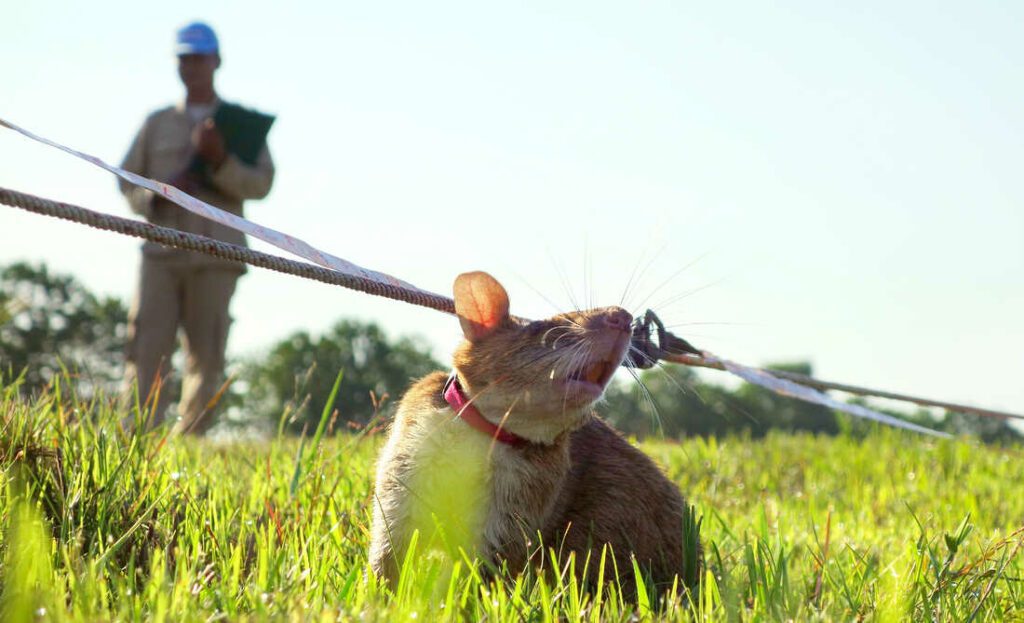African giant pouched rats, large, cat-sized rodents native to central Africa, have poor vision but an exceptional sense of smell. But did you know that humans use rodents to sniff out land mines in Vietnam?
In Vietnam, humans have trained rats to detect land mines.
Rodent Super Sniffers
This makes them ideal candidates for sniffing hidden landmines and detecting explosive TNT. Even decades after a conflict, explosive remnants of war linger on the earth, maiming and killing thousands of people each year who come into contact with them.
According to the 2014 Landmine Monitor report, mines and other buried explosives killed 3,308 people worldwide in 2013, down from 4,325 in 2012.
Finding these hidden explosives is difficult and dangerous: metal detectorists risk their lives and work slowly, pausing to investigate every suspicious ping. While trained dogs are widely used, they are costly and difficult to transport.
APOPO, a Belgian non-profit, has raised an army of TNT-sniffing African giant pouched rats. These critters are light enough to quickly walk over mines without setting them off and use their noses to locate explosives.
According to an email from APOPO training manager Abdullah Ramadhan, one rat can search over 2000 square feet in 20 minutes, an area that a human could take up to four days to explore.
APOPO has helped clear 13,200 mines from minefields in Tanzania, Mozambique, Angola, and, most recently, Cambodia since its inception in 1997. (Source: National Geographic)
The Trained Rat Soldier
It is difficult to train the rats to detect landmines. For starters, rodents must learn how to interact with humans from infancy. Another issue is that they do not respond to verbal commands, so trainers must teach them that hearing a click means they will receive a food reward.
The final step is to harness the animals and teach them how to walk on a rope grid in the field.
When the trained rats come across a landmine, they stop and scratch at the TNT-scented spot, which human de-miners mark and return to excavate later. If they discover a mine, they detonate it on the spot.
The entire training process takes about nine months for each rat. And there’s a catch: the animals only live about eight years, which means a lot of training for an animal with such a short lifespan.
Ramadhan claims that the landmine-sniffing rats have significantly impacted their work areas.
According to a government report, nearly half of Cambodian communities say landmines harm their livelihoods by limiting the land they could otherwise use for construction or farming. (Source: National Geographic)
New Batch of Sniffers
Cambodia has sent out its next generation of rat recruits to sniff out landmines as part of efforts to boost de-mining operations in the country, which has been plagued by unexploded ordnance for decades.
Twenty African giant pouched rats were imported from Tanzania recently and have undergone extensive training.
They are all easy to work with and they don’t care about who their handlers are, Any one of us can be their handler and most importantly, they don’t bite.
So Malen, Rat Handler
(Source: National Geographic)
